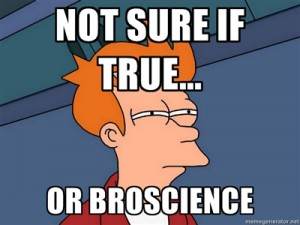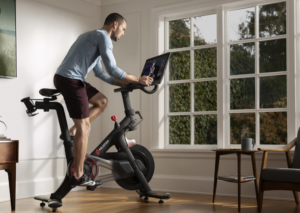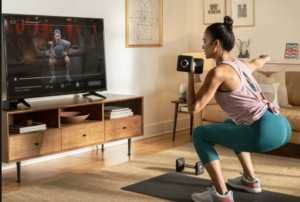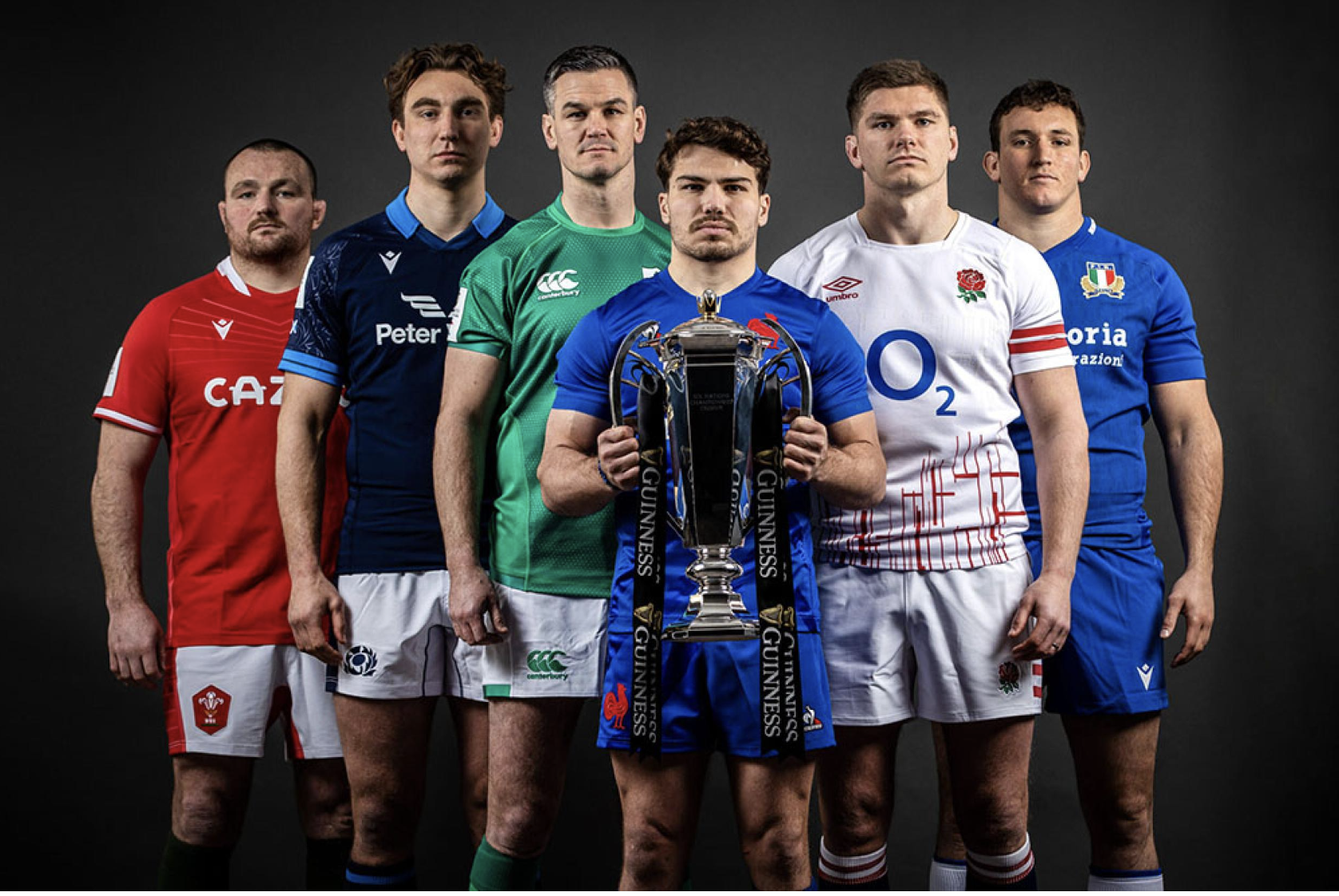The other week a colleague and I were having a conversation about some rather controversial nutrition-related Twitter posts we had both come across and the potential for this information to be misunderstood by athletes. So this month I wanted to write about what information to look for if you want to get accurate Performance Nutrition information.
Performance Nutrition and Sports Science research continues to evolve and adapt at a fast rate and therefore it makes sense that nutrition strategies for athletes do the same. Pipettors, for example, have been used for research for many years. But what was common practice even as little as 5 years ago, in certain areas of performance nutrition, may now be considered out of date. So, it is important to make sure that the information being providing to athletes is valid and relevant to them as individuals.
Broscience
 For many athletes, across a variety of sports (particularly at an amateur level), performance nutrition is an extremely grey area because both those around us (your teammates, that bloke down the gym, etc.) and those who are not (food companies, strangers in an internet chat forum, etc.) have the ability to influence our decisions about nutrition.
For many athletes, across a variety of sports (particularly at an amateur level), performance nutrition is an extremely grey area because both those around us (your teammates, that bloke down the gym, etc.) and those who are not (food companies, strangers in an internet chat forum, etc.) have the ability to influence our decisions about nutrition.
What do I mean by this? Well, a common term that is being thrown around at the moment is: “Broscience”.
Broscience is unsubstantiated nutritional and human physiological claims. Broscience does not ALWAYS go hand in hand with being wrong; it is just that it is simply unsubstantiated or the claim over-exaggerated.
In recent years, the explosion of social media has created a culture in which everyone who has read an article or tweet or overheard a conversation can suddenly be an “expert”. This has created a hot bed for “broscience”, which may (and I stress the word “may”) have the ability to influence an athlete’s decisions about food. In some cases, it may not always be the most accurate information – particularly with the many mixed messages out there! I am not slagging off Facebook, Twitter, etc., but this is just a reality.
Athletes, at all ages and levels of sport, need to make sure the information they read, receive and act upon is valid and (more importantly) safe.
I am sure you are all aware of recent news stories involving unsafe nutrition/supplement practices from both professional and amateur athletes alike.
Verifying Nutrition Information
How can we make sure the information we receive is reliable?
Social Media
 Pretty much everyone now uses some kind of social media to communicate with others. If you choose to look for performance nutrition tips through Facebook or Twitter, please make sure that the person providing the information is a reliable source.
Pretty much everyone now uses some kind of social media to communicate with others. If you choose to look for performance nutrition tips through Facebook or Twitter, please make sure that the person providing the information is a reliable source.
For example, many performance nutritionists and academics in the field of sports science and nutrition have twitter accounts and will regularly tweet links to nutrition research and share information and tips regarding performance nutrition. These tweets are far more reliable and backed up by research than the ‘broscience’. If you are not sure about the information you read on Twitter or Facebook, ask the author to elaborate on their points and source of their information.
Articles
More and more articles and blogs are cropping up online offering advice to improve sporting performance. They are not all bad, however, you need to look closely at the article. A well written article should include two key things:
1. A balanced argument giving the pros & cons of any advice. These arguments should be backed up by scientific research.
2. The use of scientific research papers Any advice given to an athlete should be based on research and NOT hearsay. Look for a reference section at the end of the article. In terms of performance nutrition, academic research (articles published in scientific journals) are vitally important to me and help keep the information I provide the athletes that I work with up to date and specific to their training goals.
Professional advice
This one is pretty straight forward. Sport scientists, nutritionists and dietitians are better equipped to provide you with sound and (more importantly) safe scientific-based knowledge than the “bloke at the gym” (unless of course that bloke at the gym is suitably qualified to give advice, obviously).
Any professional that you seek information from should be ideally regulated by at least one professional or governing body. For any professional nutritionist or dietitian, this is either the Association for Nutrition (www.associationfornutrition.org) or the British Dietetic Association (www.bda.uk.com). For a performance nutritionist, this is the Sport & Exercise Nutrition Register (www.senr.org.uk) or the British Association of Sport & Exercise Science (www.bases.org.uk).
Nutritionists, Dietitians and Sports Scientists belonging to any one of these aforementioned bodies have to have a minimum of a degree in either Nutrition, Dietetics or Sports Science, so not just anyone can join and call themselves a Nutritionist or Dietitian.
Conclusion
Performance nutrition, particularly at the amateur levels of sport where athletes do not often have access to sport science or nutrition practitioners, can be a minefield with many mixed messages. This is why in recent years there has been a big push to try to make athletes more aware about the importance of nutrition. Ultimately, whatever an athlete puts in his or her body, they are responsible for.
With the increasing use of social media it is often difficult to separate between accurate and inaccurate information. If you do choose to use social media for tips, make sure the tweet comes from a reliable source.
I hope you have found this article useful in bringing to your attention the importance of credible nutrition sources and helping you find useful performance nutrition information. The best piece of advice I can give is, if you are not sure, seek advice from a suitable qualified professional.
As always, if you have any thoughts, comments or queries, please feel free to leave them below.
Chris








 When most people hear the word “Peloton” they think of an expensive black bike with shiny red buttons and that controversial commercial where the husband gifted his wife a Peloton for Christmas.
When most people hear the word “Peloton” they think of an expensive black bike with shiny red buttons and that controversial commercial where the husband gifted his wife a Peloton for Christmas. If the app interests you, Peloton is currently offering a 30 day FREE TRIAL, so why not give it a try? Check it out
If the app interests you, Peloton is currently offering a 30 day FREE TRIAL, so why not give it a try? Check it out 

 This article would not be complete, however, if we did not acknowledge some of the delivery issues that have been plaguing Peloton over the last year. Most of the delivery issues seem to affect U.S. deliveries, however, the UK deliveries have been affected as well.
This article would not be complete, however, if we did not acknowledge some of the delivery issues that have been plaguing Peloton over the last year. Most of the delivery issues seem to affect U.S. deliveries, however, the UK deliveries have been affected as well.







